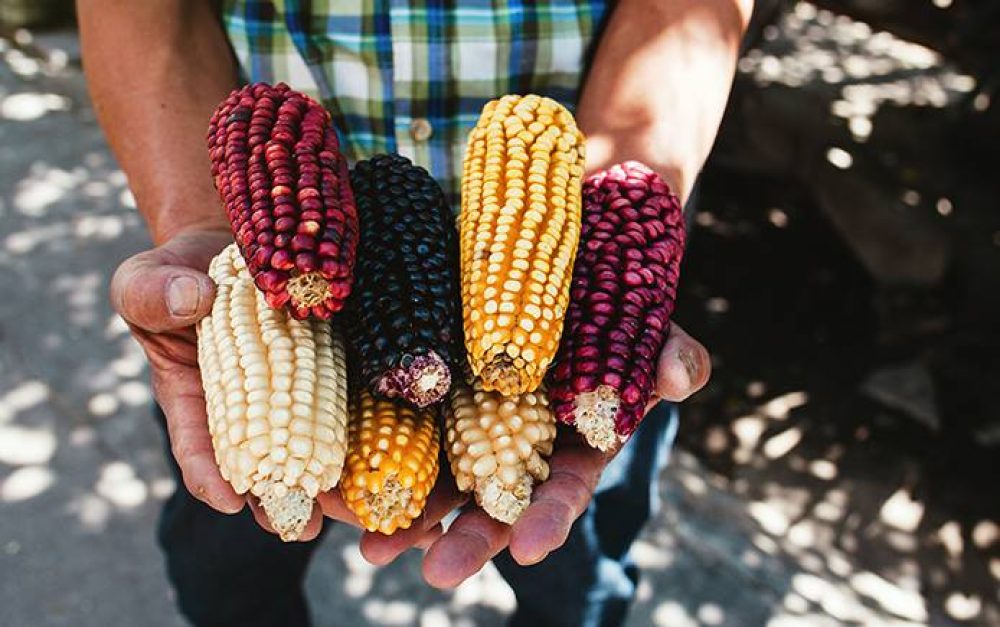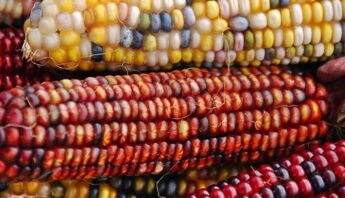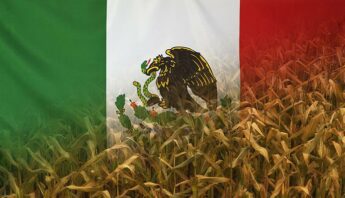In a huge win for small farmers and Native communities, Mexican president Andrés Manuel López Obrador closed out 2020 by issuing a decree that will phase out the use of the herbicide glyphosate and genetically modified (GM) corn in the country by 2024.
In a huge win for small farmers and Native communities, Mexican president Andrés Manuel López Obrador closed out 2020 by issuing a decree that will phase out the use of the herbicide glyphosate and genetically modified (GM) corn in the country by 2024.
Glyphosate on the chopping block
This official decree comes after the President’s August 2020 announcement that the country planned to phase out glyphosate gradually, citing that an immediate ban would impact food output. The order was activated on January 1, 2021, and gives private companies until January 2024 to replace glyphosate with sustainable, culturally appropriate alternatives to “safeguard human health, the country’s biocultural diversity, and the environment.”
In 2016, the PAN International network released a comprehensive “State of the Science” review, presenting a large body of research documenting the adverse human health and environmental impacts of glyphosate. Health impacts highlighted include acute poisoning, kidney and liver damage, imbalances in the intestinal microbiome and intestinal functioning, cancer, genotoxicity, endocrine disruption, reproductive and developmental reduction, neurological damage, and immune system dysfunction.
Also in 2016, the World Health Organization’s prestigious International Agency for Research on Cancer (IARC) designated glyphosate as a “probable” human carcinogen.
Bayer, the manufacturer of the popular glyphosate-based product Roundup, has spent the last few years embroiled in lawsuit after lawsuit over the health impacts of exposure to the herbicide. The corporation has been ordered to pay billions in damages to plaintiffs.
GM corn out as well
In addition to phasing out glyphosate, the presidential decree also states that Mexico will “revoke and refrain from granting permits for the release of genetically modified corn seeds into the environment.”
Small farmers, organic growers, and opponents of GM crops celebrated this win, sharing that the current use of GM corn in Mexico contaminates age-old Native varieties of corn and encourages the use of dangerous pesticides that endanger public health and harm biodiversity.
Our partners at Red de Acción sobre Plaguicidas y Alternativas en México (RAPAM) highlighted that the decree:
. . .indicated that the adoption of this measure was due, among other reasons, to the fact that, ‘in order to achieve self-sufficiency and food sovereignty, our country must focus on establishing a sustainable and culturally appropriate agricultural production, through the use of practices and agroecological inputs that are safe for human health, the country’s biocultural diversity and the environment, as well as congruent with the agricultural traditions of Mexico.’
A key cog in the pesticide treadmill
Both glyphosate and GM corn are key actors in the pesticide treadmill, in which patented GM seeds are designed for use with specific pesticides, leading to increased use of these chemicals and the emergence of herbicide-resistant “superweeds” — which leads in turn to corporate sales of new GM seeds engineered to tolerate other herbicides.
In the U.S., this treadmill has led to the destruction of millions of crop acres from drift of the volatile herbicide dicamba, which has been promoted as a glyphosate replacement. The fact that these tools of corporate-controlled agriculture are being phased out together in Mexico is highly encouraging.
The PAN International review of glyphosate and the 2016 IARC decision triggered the addition of glyphosate to the official PAN International list of Highly Hazardous Pesticides (HHPs), and underscores the need for a global action on the herbicide. PAN International has called for all HHPs to be replaced with “safe, sustainable and ecologically sound methods of pest control” worldwide.
The Mexico ban of glyphosate is one important step down that road. PAN North America is also part of a current lawsuit against the U.S. Environmental Protection Agency after the agency published an interim registration review for glyphosate deciding the herbicide remains safe to use.







